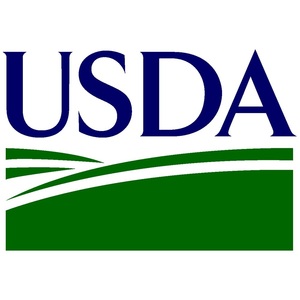SD, VA projects receive USDA value-added grant funding

November 17, 2015
BY Susanne Retka Schill
Five bioenergy projects in two states were among the 258 businesses nationwide receiving a total of nearly $34 million from the USDA Rural Development Value-Added Producer Grant program. The grants were announced last week by Deputy Under Secretary Vernita Dore.
“This funding will enable farmers and ranchers to develop new products, improve the bottom line for their operations and help create a robust local and regional food system,” Dore said. “Value-Added Producer Grants provide capital to enable ag producers to grow their business through diversification. USDA’s support is especially important for beginning farmers and smaller farm operations.”
Two projects in South Dakota received funding, including $250,000 in working capital for a 70 MMgy ethanol plant being developed in Onida by Ring Neck Energy. Global Dairy LP received a planning gran of $53,907 to develop a business plan, analyze the installation of an anaerobic digester and create branding for the renewable energy entity.
Advertisement
Advertisement
Three bioenergy project were funded in Virginia: Engel Family Farms received a planning grant of $73,400 to determine the feasibility of producing energy pellets from corn stover, Next Generation Woods received a planning grant of $50,245 to determine the feasibility of changing timber products to biochar and charcoal, and FDC Enterprises received a planning grant of $75,000 to determine the feasibility of converting switchgrass into fuel and poultry bedding.
Value-Added Producer Grants can be used to develop new agricultural products or additional markets for existing ones. Military veterans, socially-disadvantaged and beginning farmers and ranchers, operators of small- and medium-sized family farms and ranches, and farmer and rancher cooperatives are given priority when applying for these grants.
Advertisement
Advertisement
Since 2009, USDA has awarded 1,115 Value-Added Producer Grants totaling $154 million. Approximately 18 percent of the grants and 14 percent of total funding has been awarded to beginning farmers and ranchers. During 2015, more than one-third of Value-Added awards went to farmers and ranchers developing products for the local foods sector. Rural Development helped 84 agricultural producers carry out local foods projects in 2014 through almost $8.9 million in Value-Added Producer Grant awards.
Congress increased funding for the Value-Added program when it passed the 2014 Farm Bill. That measure builds on historic economic gains in rural America over the past seven years, while achieving meaningful reform and billions of dollars in savings for taxpayers.
Related Stories
U.S. fuel ethanol capacity fell slightly in April, while biodiesel and renewable diesel capacity held steady, according to data released by the U.S. EIA on June 30. Feedstock consumption was down when compared to the previous month.
XCF Global Inc. on July 8 provided a production update on its flagship New Rise Reno facility, underscoring that the plant has successfully produced SAF, renewable diesel, and renewable naphtha during its initial ramp-up.
The U.S. EPA on July 8 hosted virtual public hearing to gather input on the agency’s recently released proposed rule to set 2026 and 2027 RFS RVOs. Members of the biofuel industry were among those to offer testimony during the event.
The USDA’s Risk Management Agency is implementing multiple changes to the Camelina pilot insurance program for the 2026 and succeeding crop years. The changes will expand coverage options and provide greater flexibility for producers.
EcoCeres Inc. has signed a multi-year agreement to supply British Airways with sustainable aviation fuel (SAF). The fuel will be produced from 100% waste-based biomass feedstock, such as used cooking oil (UCO).
Upcoming Events










